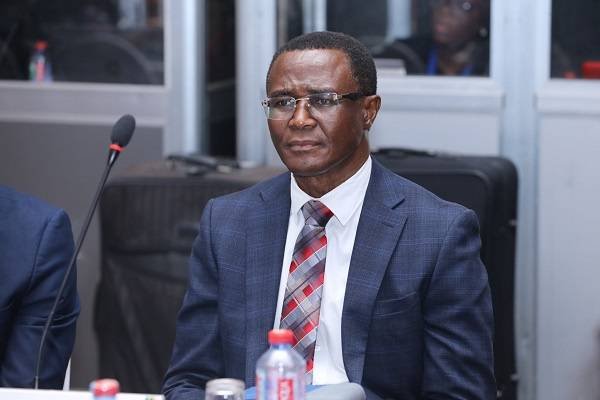
The Public Accounts Committee (PAC) of Parliament has taken issues with the Bank of Ghana for its failure to capture a transaction involving the export of more than 40,000 tonnes of bauxite by the Ghana Export Company Limited in its audited accounts for 2015.
The committee, chaired by Mr James Klutse Avedzi, consequently directed the central bank to furnish the PAC with the report today as it began sittings to scrutinise the audited accounts of some state institutions for the 2015 fiscal year.
At its sitting yesterday, the Member for Efutu, Mr Alexander Afenyo-Markin, who drew the committee’s attention to the anomaly, said he knew for a fact that more than 40,000 tonnes of bauxite valued at $41 million were exported in 2015 and yet it was not captured by the audited report of the central bank.
The PAC was considering the report of the Auditor General on the statement of foreign exchange receipts payable to the Bank of Ghana for the half year ended June 30, 2015, and December 31, 2015.
The Second Deputy Governor of the BoG, Dr Johnson Asiama, who led a team of directors from the bank to the PAC, assured the committee that he would make the detailed report involving the export of the bauxite available today.
Failed projections
Commenting on why the BoG missed out on its projections for 2015, Dr Asiama said the bank had no control over such external factors that influenced certain economic indices such as the prices of commodities on the international market.
He advised Ghanaians to guard against making utterances that had the tendency to hurt the economy.
Dr Asiama could not, however, respond specifically to certain issues, since they were within the domain of the Ministry of Finance which had to do with the budget for the training of Ghanaians abroad that increased from GH¢12.71 million in 2014 to GH¢22.45 million in 2015.
Forex information and economic projections
When asked if the BoG was in the position to capture all forex information and such related matters as mandated by the law, Dr Asiama responded in the affirmative, saying the central bank captured such information either by way of trade and investments or remittances but acknowledged that there were few slippages that were difficult to capture.
On his projections on the prospects of the economy, the deputy governor submitted that: “I do not see a return of extreme volatility as happened in the past because the macroeconomic environment looked good to guarantee a stable exchange rate”.
Monitoring
When asked about the steps the BoG had put in place to independently verify whether or not mining companies were under-reporting, Dr Asiama indicated that the bank had strong systems in place monitoring gold exports and added that the bank was connected to a database system in collaborating with GCNET to check such exports.
He posited that the BoG intensified its monitoring since last year and was able to track how much commodities were imported in and exported.
According to Dr Asiama, export figures increased for gold and other commodities and highlighted the need to develop the non-traditional exports to make them competitive on the global market to earn foreign exchange for the country and projected that the price of gold and cocoa was expected to increase.
At the sitting, it was made known that Newmont Ghana was not bound by law to surrender its receipts to the BoG.
Mr Avedzi, in his advice to the BoG, said all foreign exchange receipts and payments needed to be well taken care of to minimise the rate of taking foreign exchange out of Ghana to protect the local currency from pressure.
Sitting continues today as the Ministry of Food and Agriculture takes its turn.
The Public Accounts Committee (PAC) of Parliament has taken issues with the Bank of Ghana for its failure to capture a transaction involving the export of more than 40,000 tonnes of bauxite by the Ghana Export Company Limited in its audited accounts for 2015.
The committee, chaired by Mr James Klutse Avedzi, consequently directed the central bank to furnish the PAC with the report today as it began sittings to scrutinise the audited accounts of some state institutions for the 2015 fiscal year.
Read Full Story

























Facebook
Twitter
Pinterest
Instagram
Google+
YouTube
LinkedIn
RSS